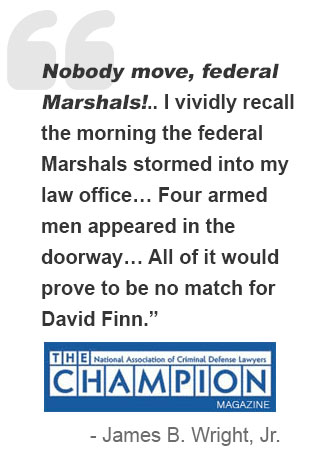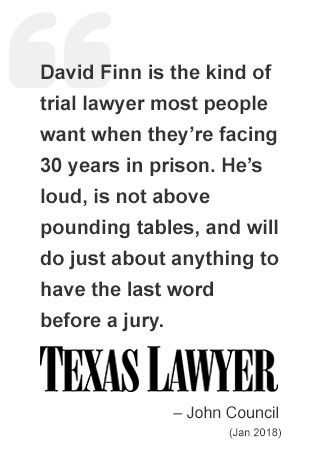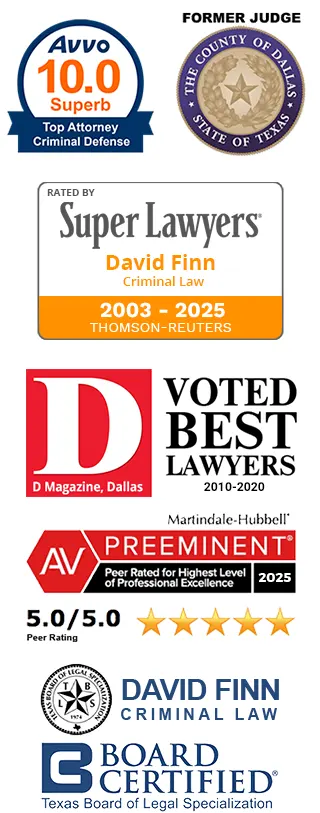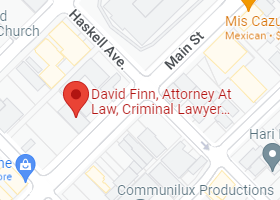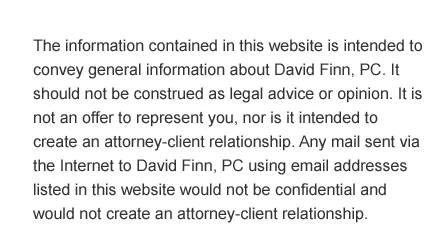

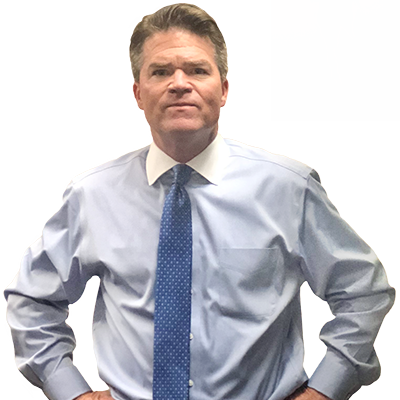
Under Indictment, or Why I Talk to Raccoons
By James B. Wright, Jr. / Champion Magazine – National Association of Criminal Defense Lawyers
“The criminal justice system in the United States today bears little relationship to what the Founding Fathers contemplated, what the movies and television portray, or what the average American believes.”
– Jed S. Rakoff, U.S. District Judge1
I have been a lawyer for 27 years, I vividly recall the morning the federal Marshals stormed into my law office. I had just arrived and was sitting at my desktop to start the day. Shortly after sitting down, a loud noise came from the reception area. Someone was screaming, “Nobody move, federal Marshals!”
Under Arrest

They told me I had been indicted on two federal counts and that I was under arrest. Count one was Conspiracy to Commit Bank Fraud and count two was Conspiracy to Commit Money Laundering. The Marshal who had clamped my hands stood me up and shackled a chain around my waist and hands, and then he added another chain around my legs. Again, I guess they were under the impression that I was as super villain and posed some heightened risk. The marshals then walked me out of my office, the office I shared with other lawyers and staff, who stood by, frozen, watching the spectacle. They marched me across the parking lot in front of all my neighbors who also were watching the spectacle, with coffee in hand, and filming with their phones.
All this took place between 8:15 and 9:00 a.m. one morning in spring 2016. Approximately 8-10 Marshals and agents arrived at my office that morning. They were armed, not only with weapons, but also with crowbars in case they had to bust their way into my office. This was the same office they and others had just watched me walk into that morning, but they still saw a need for crowbars. They took me to the federal courthouse in Gulfport, Mississippi, about a 30-minute-drive from my office in nearby Ocean Springs. It was a lovely morning, other than my arrest, of course.
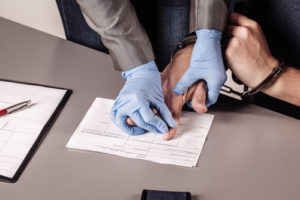
I probably should have led with this, but I was innocent of the charges and had absolutely no involvement with any of the matters set out in the indictment. That afternoon, sitting with my wife in the office and talking about what had happened, I was under the clear belief that the whole thing was a misunderstanding or perhaps just a lack of knowledge on the part of the Feds. I thought that, in relatively short order, I would explain the truth and the entire matter would be resolved. I’m sure you have probably guessed, at least in part, this is not what happened at all. For the next two years, federal prosecutors and federal agents would spend a considerable amount of time, money, and resources trying to convince me that unless I pleaded guilty, I would spend a whole lot of time, most of the rest of my life, in prison.
The speed with which bad news travels is mind-boggling. Shortly after my indictment an arrest, my title insurance company – the life blood of any real estate lawyer – contacted me and said I was being dropped and needed to cease issuing title insurance immediately. Clients and banks who previously sent me business routinely, stopped doing so. Lawyers I normally interacted with at court no longer would come up to me and talk. One local judge called me to his chambers. He told me he had read the indictment and that he didn’t want me “to get him in any bind.” I guess an indictment is contagious and people just wanted to be careful. My law practice and my ability to support my family were at an end.
Broker’s Commission

Sometime in 2010, I was asked to handle some closings related to the GoZone legislation (a federal program designed to help rebuild the Mississippi Coast after Hurricane Katrina) by a real estate “broker” of sorts. This broker had entered into contracts with builders/sellers of property in Mississippi to market and get buyers for a surplus of rental/investment properties of the Coast. This broker, after signing contracts with sellers, then went out and found buyers/investors. All the properties at issue were investment properties; no buyer would be moving into these properties.
As far as my office was concerned, these were just normal real estate closings, perhaps with an additional party (the arrangement would be similar to a party that has an option on a property and then sells that option to another “buyer,” leaving three parties to the transaction.) As is usual for busy real estate offices, I had a real estate paralegal who worked on closings – preparing the paperwork and dealing with the parties.

Someone came up with the idea of leaving the broker’s commission off the HUD closing statement that was sent to the lender and its Underwriting Department for approval. I had no knowledge of any of this. The broker selected the lender, and the lender had a very detailed and close relationship with the broker. The lender, however, never questioned why the broker’s commission was not on the HUD. Strange indeed.
My office eventually closed about 100 of these deals. The government indicted on 75 of them. The crux of the matter, according to the government, was that there was bank fraud because my office sent fraudulent HUDs (leaving the broker’s commission off) to a federally insured lender and loans were approved. Also, every party to the transactions received every single penny he was supposed to receive. In fact, during the trial, an email was presented from the boss of the government’s chief investigator stating that perhaps they shouldn’t pursue this case because there were “no losses”.
The broker’s commission (called a “kickback” in the indictment), which the government alleged was being hidden from the lender, was the subject of a 10-page written contract with every seller, was mentioned prominently in a separate contract the broker had with every buyer, and the lender was only involved because of the broker. I have never heard of a kickback being so openly and contractually spoken of before. Secret? No chance!
Some important facts: every communication between my office and the lenders went through my paralegal. The lenders never contacted me about anything. Every communication with the buyers and sellers went through my paralegal, and every communication with the broker went through my paralegal. I had zero communication with any of the parties involved. These closings were all “mall-outs,” so it was not unusual for a paralegal to handle it this way and none of the parties had an issue at all. Perhaps some of the parties (my paralegal, lender’s loan officer, and maybe the broker) purposely sought to leave me out of the loop (they knew this was something I would never allow).
The Criminal Side Is Different

The government’s lawyers made sure they let me know that the jury pool would be very conservative and generally sides with the government. Also, they set out what the testimony would be from the investigating federal agent on the case. He would, evidently without any concern for consequences, lie. I still remember being incredulous about the notion that a federal agent would just lie. I mentioned it to at least three or four lawyers and, they all said this was normal. I guess I have spent most of my legal career inside of my own civil law cocoon and am unaware of what goes on in the criminal justice system.
One of the most shocking things to me was how different the criminal system is from the civil system. When only a person’s money is on the line, he or she is allowed unfettered and far-reaching discovery. When one’s freedom and possibly one’s life are on the line, there is no discovery. Wow! Throughout the two-year ordeal, my lawyer and I could not send questions or take anyone’s deposition. There would be a parade of witnesses whose names we did not even know until the eve of trial, much less have a chance to ask them questions. We had to rely on the government, the same government who was trying to send me to prison and who suborned perjury, to send us what the government determined was required. “Flawed system” is the understatement of the century. It is obscene.

I graduated from one of the top law schools in the country. At trial of the assistant U.S. attorneys (AUSAs) tried to use the fact that I graduated from the University of Texas Law School against me by arguing that I would be too smart not to know about the crimes going on and be part of it because I went to an “Ivy League” school.
Even with all my experience and education, I came very close to pleading guilty and just accepting my fate. The pressure brought to bear by the prosecutors and the charges they bring are all designed for one thing – getting guilty pleas.
Talking to Raccoons

At approximately the same time as my indictment in 2016, I noticed a handicapped raccoon hanging around our deck at home. Coincidence? This raccoon – I call him Ed – is the first raccoon with which I ever had any contact. Of course, I have not actually been talking to raccoons, at least not in the sense of an actual conversation. But I suppose I can admit that at first and on occasion I spoke with them like people talk with their dogs or cats.
As much as it pains us to say it now, at the time of Ed’s first appearance we contacted the folks at a local humane organization and asked that they come and pick him up for release elsewhere. They came one afternoon and, despite their best efforts, could not catch him. Surely a sign from above that he was to become a big part of our lives. They told us to call back when he came out from hiding. But we decided he was better off staying with us.
From that day until the present, Ed is still part of our daily lives. He seems to have grown very accustomed to us. He starts almost every morning by scratching on the back door for food, and he will continue to scratch until we bring it. He will sit at the door and eat from our hands and have his head scratched. He is such a gentle animal that when we are holding a cracker or some other food in our hand, he will very slowly and carefully take it from us. It’s almost as if he knows he needs to be extra careful – not for his protection, but because he doesn’t want to startle or scare us.
Our deck is five steps up from the ground. To watch Ed struggle to get up the steps many times throughout the day, day after day, is a testament to his force of will and inner strength. Watching him go through this brings to the fore a host of emotions – from sadness to amazement and happiness, in addition to the spiritual tug at the heart as thought God were giving him just a little more strength to get him up the stairs. How could we not do our part and provide him with sustenance and love?
I mention the raccoons to point out that people have several options when they are facing obstacles in their lives. They can turn to suicide, drugs, alcohol, crime, vice, or prescriptions to help them deal with an almost unbearable amount of stress, or they can find strength elsewhere. Ed taught me about strength, perseverance and fortitude, particularly when life seemed to be doing its very best to keep a boot firmly planted on my neck while my face was pressed into the mud. If Ed was going to climb those steps every day, then I certainly was going to handle the government that was trying to destroy me.
Innocent People Plead Guilty
Unless you’re the one whose head is on the chopping block, it is hard to explain the pressure that one feels and it is impossible to give someone advice. This problem has had some light, very little though it be, shone on it in the form of innocent people pleading guilty to crimes they did not commit.
Judge Jed S. Rakoff wrote in a New York Review of Books article:
How prevalent is the phenomenon of innocent people pleading guilty? The few criminologists who have thus far investigated the phenomenon estimate that the overall rate for convicted felons as a whole is between 2 percent and 8 percent. The size of that range suggests the imperfection of the data; but let us suppose that it is even lower, say, no more than 1 percent. When you recall that, of the 2.2 million Americans in prison, over 2 million are there because of plea bargains, we are then talking about an estimated 20,000 persons, or more, who are in prison for crimes to which they pleaded guilty but did not in fact commit.2
Why would innocent people plead guilty? Perhaps they plead guilty because so much power is in the prosecutor’s hands:
But what really puts the prosecutor in the driver’s seat is the fact that he – because of mandatory minimums, sentencing guidelines (which, though no longer mandatory in the federal system, are still widely followed by most judges), and simply his ability to shape whatever charges are brought – can effectively dictate the sentence by how he publicly describes the offense. For example, the prosecutor can agree with the defense counsel in a federal narcotics case that, if there is a plea bargain, the defendant will only have to plead guilty to the personal sale of a few ounces of heroin, which carries no mandatory minimum and guidelines range of less than two years; but if the defendant does not plead guilty, he will be charged with the drug conspiracy of which his sale was a small part, a conspiracy involving many kilograms of heroin, which could mean a 10-year mandatory minimum and a guidelines range of 20 years or more. Put another way, it is the prosecutor, not the judge, who effectively exercises the sentencing power, albeit cloaked as a charging decision.3
I know what you are thinking: “Most of these people are guilty and it does not affect me. Why should I care?” Well, first, you should care because it is just not right and, in fact, it is morally reprehensible. If, however, that is not enough to move you to action, then consider that you too could easily be caught up in this system and facing some very serious charges of which you are not only innocent, but also about which you know absolutely nothing. If you think it cannot happen to you, think again. I was you not so long ago.
“When the prosecutor hears my side of the story, he will just drop all charges and I can go about my life and my business”. Nope! Not happening! Perhaps at some time in the past U.S. attorneys, district attorneys, and prosecutors searched for truth and justice, but this is no longer the case. They are ll after convictions, and the truth be damned. While there are some fine people serving in these positions who do the right thing, far too many are exactly as I describe and they suffer no consequences for their actions. Corrupt prosecutors are the norm, not the exception.
Do you think that the almighty grand jury system will protect you? It will not. Theoretically, the grand jury hears evidence of a crime and reaches an “impartial” decision regarding whether to indict a person. However, consider this little nugget of truth: “During a single four-hour workday last week, a Mecklenburg County grand jury heard 276 cases and handed down 276 indictments. That means the 18 jurors heard evidence, asked questions, weighed whether the charges merited a trial, then voted on the indictments – all at the average rate of one case every 52 seconds”.4 The grand jury indicted in every single case!
Despite the paucity of date, statistics on federal prosecutions indicate that a grand jury’s declining to return an indictment is an unusual even. Grand juries only declined to indict in 11 out of 162,351 federal cases in 2010.5
Professor James Shannon wrote about grand jury flaws over four decades ago:
[T]he grand jury has lost its historical identity as a shield protecting innocent citizens from unwarranted charges by officers of the law, and has become a shield protecting officers of the law from possible criminal charges by the citizenry. The grand jury has thus become in effect and administrative agency, executing in secrecy and with unlimited discretionary power, the policies, also determined in secret, of law enforcement officers who continue to maintain the fiction that the grand jury Is a free and autonomous body impartially ferreting out objective truth. This proposition is simple no longer believable.6
The Trial
At some point in the process I concluded that the government was not going to get to the truth, and justice was not going to win the day, at least at this stage. Until this point, I was being represented by a local criminal lawyer. It quickly became clear to me, however, that I needed a lawyer from outside the area. I met with two high-powered Dallas lawyers whose fees were substantially more than my local real estate practice could afford. One of these lawyers, Paul Coggins, referred me to the man whom I would retain as my defense lawyer – David Finn.
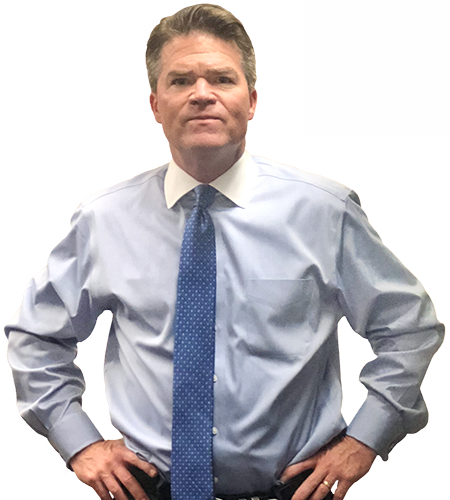
My trial in the Federal District Court in Sherman, Texas, started on Dec. 18, 2017. The government showed up with the three AUSAs, two federal investigators, and a computer specialist. The prosecution also brought 50 Bankers Boxes full of papers. All of it would prove to be no match for Finn.
One of the most shocking things during trial was the government’s failure to go into what actually happened. There were no questions by prosecutors to any of the witnesses about why the commission was left off the HUDs. Most important, prosecutors did not ask questions concerning who concocted the idea to leave it off. There were no questions about the lenders did not file a title insurance claim (there was title insurance on every single loan) other than the time my defense attorney asked. The government did not ask any questions as to why there were no claims against my errors and omissions insurance. Why? The government surely knows. Maybe the government did not want 75 borrowers to challenge their loans because of the fraudulent conduct of one of the largest mortgage lenders in the country. Perhaps prosecutors did not actually believe I had done anything wrong.
The government called approximately 10 witnesses. Not a single witness testified that he or she had ever spoken with me about the closings. When the time came for the star witness to testify, the prosecutor asked my paralegal (who had secretly recorded me on at least two occasions for the government) if I had taken part in planning any of it. He answered “no”. When asked if I was “aware” of it, he answered “yes”. The government also played the two secret recordings. The highlight was when I said, “Somebody with the government just has a wild hair up their ass.” The jurors laughed, and my co-defendant gave me a fist bump. That was the sum of the government’s evidence after two years, millions of pages of documents, and unknown dollars spent.
On the fifth day, the jury started its deliberations. After five or six hours and just before the jury returned with its verdict, my wife and I were sitting on a bench just outside the courtroom. I had given her the keys to our vehicle and my wallet because I was sure I was going to prison, not because I was guilty, but because the government wanted me there. At 5:30 p.m. she and I heard a roar of applause coming from the jury room. We assumed they had reached a verdict. “I hope they wouldn’t be celebrating if they were sending someone to prison”, I told my wife. “They would not be celebrating if that were the case”, she replied. Throughout the entire ordeal, my wife was my rock. If it had been for here love, strength and fortitude, I would have pleaded guilty and would be in prison now.
Where does all this leave us? Form me, after a five-day jury trial in the Federal District Court of Sherman, Texas, a jury found me not guilty two days before Christmas in 2017.
As of August 2018, the Justice Department has not issued a statement to announce my trial’s not guilty verdict, like the statement issued when it announced my indictment. I will continue to hold my breath waiting for it. A not guilty verdict in federal district court is a rare occurrence. Two of the three AUSAs at my trial had not lost a case in 10 years. The judge who presided over my trial had not seen a not guilty courtroom in three years.
The government was trying its best to lock me up for most of the rest of my life. I am 57 years old. The crimes were punishable by up to 30 years, depending on how the government wanted to calculate the money at issue. This is not my field, but they were talking about 7-10 years in prison.
My paralegal, the “rat”, admitted to the bank fraud and pleaded guilty. He also forged the signatures of every single seller on the 75 HUDs sent to the lenders. The government was aware of this, but prosecutors never charged him. The AUSA asked him at trial if I had been “aware of” these forgeries, and he testified that I had not been aware. He was sentenced to three years of probation and a fine. That’s it.
The government destroyed my professional life, caused unimaginable stress and anxiety to me and my family (I have young daughters), took every single penny of our savings to mount a defense, tried to lock me up for years, and the actual criminal received three years of probation. The system is screwed up. I question how prosecutors and U.S. attorneys can do these things, but even more I question how judges allow these things to happen. What are they – just figureheads sitting in the courtroom to rule on an objection every now and then?
Free
I am free now for three reasons: the love and support of my wife, Lourdes Wright; my lawyer, David Finn; and my unwavering faith in God. I am not free because the system worked, the federal agents and prosecutors did the right thing, or the judge took control of a broken system.
The government now has its sights set on someone else, I am sure. I am left to try and restore my name and rebuild my devastated law practice. Also, I am left with the financial disaster caused by all of this. It took every penny we had (and many that others had) to withstand this government storm. Currently, we continue to sell our furniture and any other nonessential asset (like our refrigerator) to try and make ends meet. So far, they are not meeting, but like Ed, we keep on moving. I’m free and at home with my incredible family, including Ed the raccoon. There are not many who can say the same.
Do not wait until you are the one facing the same situation. Reforms are needed now. At best, the system is badly flawed, and at worst, it is irretrievably broken.
Notes
- Jed S. Rakoff, Why Innocent People Plead Guilty, Y. Review of Books, Nov. 20, 2014, https://www.nybooks.com/articles/2014/11/20/why-innocent-people-plead-guilty.
- Id.
- Id.
- Andrew Cohen, The Grand Jury Voting on One Case Every 52 Seconds, The Daily Beast, Feb. 5, 2014, https://www.thedailybeast.com/the-grand-jury-voting-on-one-case-every-52-seconds.
- Mark Motivans, Bureau of Justice Statistics, U.S. Dep’t of Justice, Federal Justice Statistics 2010 – Statistical Tables 11-12 (2013).
- James P. Shannon, The Grand Jury True: Tribunal of the People of Administrative Agency of the Prosecutor? 2 M. L. Rev. 141, 166-67 (1972).
- “Are you not entertained?” is a line shouted by Russell Crowe’s character in “Gladiator”.
About the Author
James B. Wright, Jr. graduated from the University of Texas Law School in 1990. He has had his own law firm since 1997 in Ocean Springs, Mississippi.
Phone Numbers
Office: (214) 538-6629


